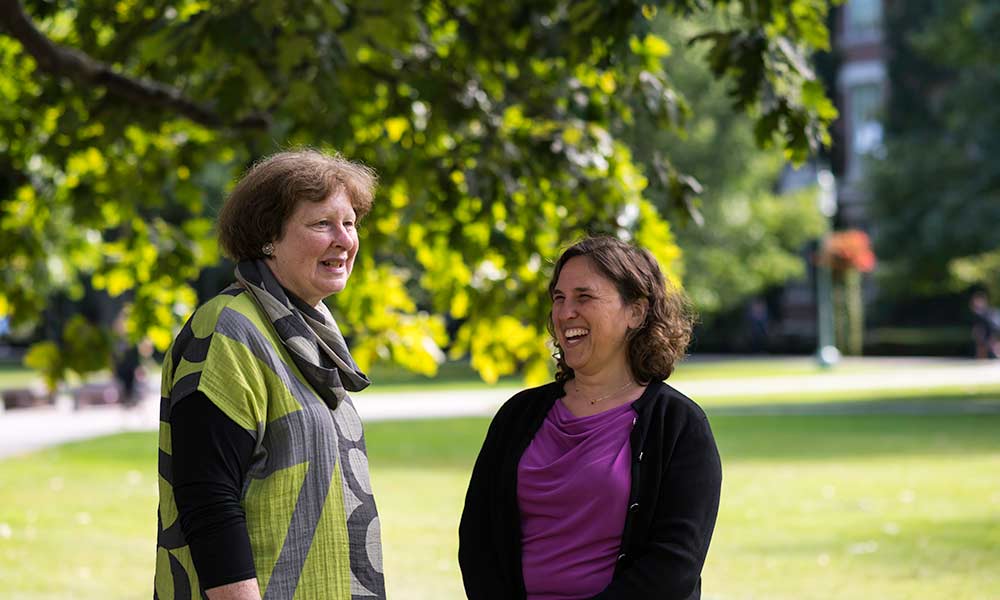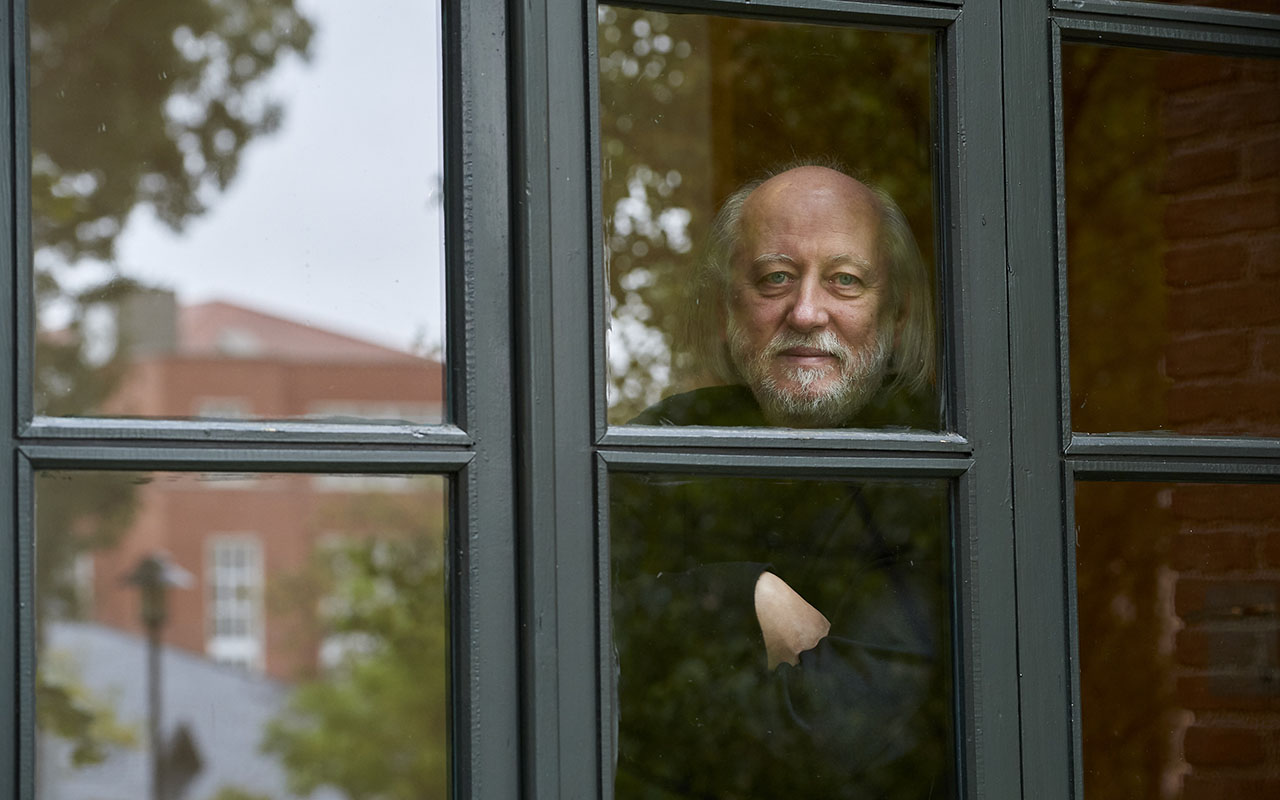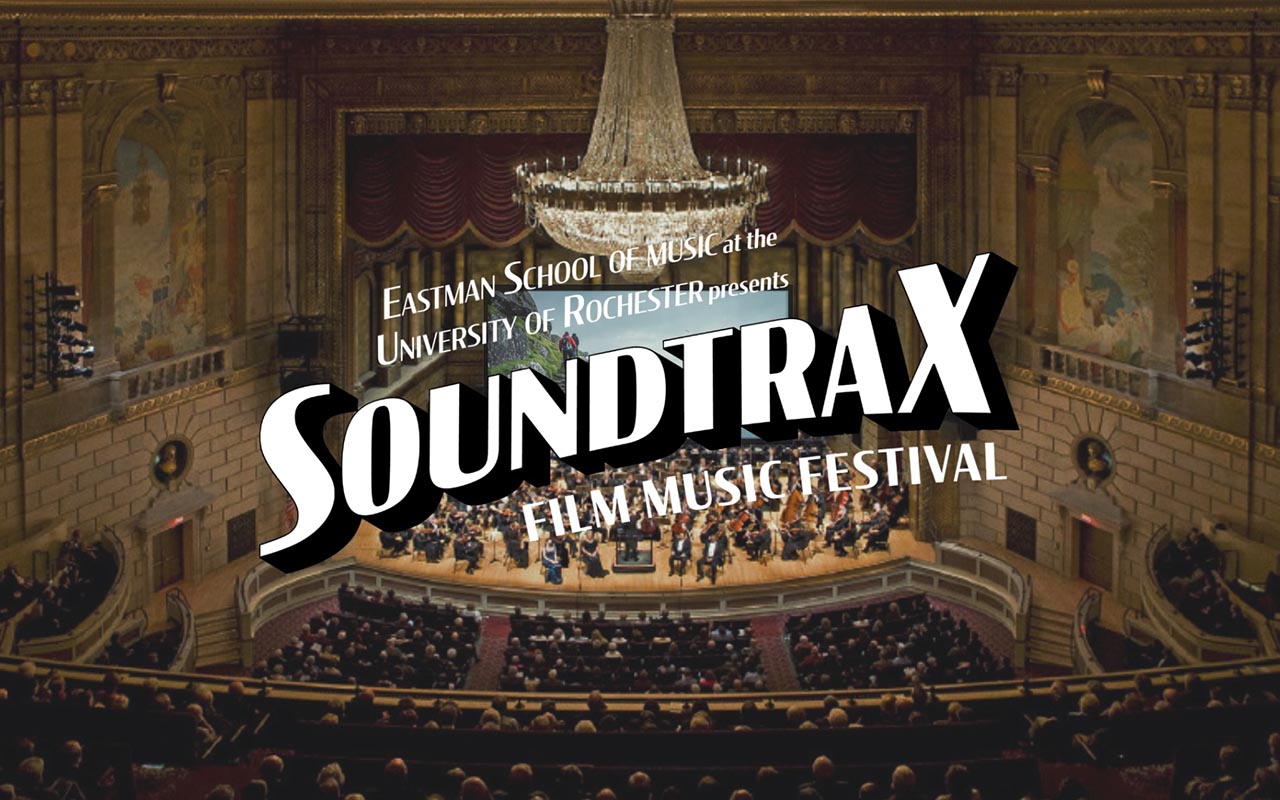The Wells Award is given annually to students in the Hajim School of Engineering & Applied Sciences who excel in both engineering or computer science and in the humanities. The award was created by the family of Robert L. Wells, a ’39 graduate of mechanical engineering who became a top executive at Westinghouse. Wells felt strongly that engineers “needed the balance of the humanities” to be competent in their field. Is that still true, and why?
To Wendi Heinzelman, dean of the Hajim School and a professor of electrical and computer engineering, and Joan Shelley Rubin, the Ani and Mark Gabrellian Director of the Humanities Center and Dexter Perkins Professor of History, the answer is an emphatic “Yes!”
They explain why in this recent conversation.
Heinzelman: What really sets top engineers apart is having not just technical skills but humanistic skills, such as the ability to create, to convince people, and to see multiple points of view. The humanities give you that in spades.
When I greet our first-year engineering students, I tell them to look at the people who have been really successful in their careers—like George Eastman and Steve Jobs. They were really great technically, but they also understood that you have to connect with people. You have to connect the technology with how people use it in their everyday lives and how it can make their lives better. That’s what really sets the great engineers apart from the good engineers. So, having that background in the humanities is still really, really valuable.
Rubin: And maybe even more valuable than it was in the past because we are a very specialized society in the way we approach the acquisition of knowledge. Look at the history of education over time. You see a relentless, increasing specialization.
The humanities are about the nature of the human experience in different times and places and cultures. And engineers are designing—or should be designing—with the human experience in mind. We had a really good example of this recently when the Humanities Center sponsored a visit by Bryan C. Lee Jr., an African-American architect from New Orleans who talked about his crusade on behalf of what he calls design justice. It’s about the values that should come into play when you design buildings or other public spaces. Where do you locate a building, how do you think about the community where the building will be located, and involve that community in the design process? That’s a really great example of the convergence of engineering skills and humanistic inquiry.
A multidisciplinary climate
The University of Rochester offers students many opportunities to step outside their majors and explore other disciplines.
Rochester Curriculum/cluster system
Instead of general education or foundation requirements, our students choose a major and two clusters (one for engineering students) that interest them.
Take 5
Unique to the University of Rochester, this program provides an additional semester or year, tuition-free, to qualified students to pursue a special academic interest.
iZone
A creative problem-solving space, program and community that empowers students of all disciplines to explore and imagine ideas for social, cultural, community, and economic impact.
Grand Challenges Scholars
A program that allows students to unify their classwork, research, global experiences, and entrepreneurial activities under a unifying theme—one of the 14 grand challenges identified by the National Academy of Engineering.
Humanities Center
The University’s home base for exploring the exploring the varied dimensions of the human experience through interdisciplinary exchange and collaboration.
Ain Center for Entrepreneurship
The Ain Center helps interdisciplinary teams of students tackle challenges and bring their solutions to the marketplace.
Heinzelman: I was chatting with Nathan Nickerson, a mechanical engineering student and Wells Award recipient this year, at a lunch with the other winners. He’s also completing a minor in art history, and he said having that experience has opened up his eyes to entirely new ways of seeing how spaces are designed and built. That is exactly why this award exists. And exactly why it is important.
Rubin: I think that humanists can also benefit from learning about what engineers do, because both engineers and humanists thrive when they cultivate critical thinking skills and problem-solving—especially in these times, when we have a multitude of problems that students want to address.
How do you approach the world as an activist without some sense of the best way to investigate a problem, gather data, see the problem as a whole, and then break it into its component parts? When we get engineers or scientists in our humanities classes, they want to know “what are the facts here,” whereas humanists are often involved in multiple interpretations. That’s part of where the creativity in the humanities comes in. But it doesn’t hurt—in fact, it helps—to know how to sort through the concrete, to get the facts first, sort through them, decide what is relevant and what is not relevant to your enquiry. So, I think we can learn a lot about problem-solving from engineers.
Heinzelman: Engineering is really designing solutions within constraints. Breaking down problems is important, but you also need to understand what the constraints are and how you make tradeoffs. If you’re going to gain in one dimension you almost always lose in another dimension. You need to be able to quantify that, to say if you follow this path, you gain here, but you also have to understand what you lose.
Rubin: And sometimes those are human costs, and issues about impacts on human beings come into play.
Heinzelman: I also think in this day and age it’s important for everyone to have analytic skills and computing skills. Even if they’re not going to pursue a career in computer or data science, everyone will use digital skills and need to understand how to analyze data.
One of the things we’ve been talking about is creating computing courses that are attractive to all, so that students who are tech shy can learn to be really comfortable with technology and how to use it in their careers and daily lives.
Rubin: And that would be an opportunity to also address the ethical dimensions of computing, and that’s another very strong bridge between the humanities and engineering.
Heinzelman: One of the big advantages for engineering students here is that they don’t have to do a lot of paperwork and get a lot of approvals—as they would at many engineering schools—to step outside their major and pursue an interest in the humanities. Students have access to any class that they want to take, because we’re all part of Arts, Sciences & Engineering.
In fact, instead of having to take general education requirements, students instead take a cluster [three or more closely related courses[ in an area that interests them in either social sciences or the humanities.
We also have programs like the Grand Challenges Scholars where one of the components is doing something interdisciplinary. So even in our programs outside of the curriculum we try to get students from different disciplines working together. The iZone and Ain Center are also excellent examples.
Rubin: And the Humanities Center itself. This is a space where we are building community not just among students with majors or minors in the humanities, but with any student who has an interest and wants to come. Our Thursday Writers Lounge, for example, is an opportunity for students from any discipline to gather, write, and share their work.
We also have a program called Meliora Scholars where we identify students from any major who want to do an independent research project. We would love to have engineers take that on. They receive funding, and they can do a research project that combines their engineering and humanities interests.
Heinzelman: The main thing I would love to get across to the engineering students is how important it is to engage in the humanities while you’re here, and how that can set them apart. All engineering graduates are going to have technical skills. But if you have skills you’ve obtained from humanistic courses or other humanistic inquiry—for example, engaging with the Humanities Center—that will set you apart.
Rubin: The same is true for humanities students. One of the messages we try to convey to them is that they should have flexible, portable skills that they can take out into the world of work. They can enhance their portfolio by being familiar and competent in the uses of computing, and in knowing what engineers do.




